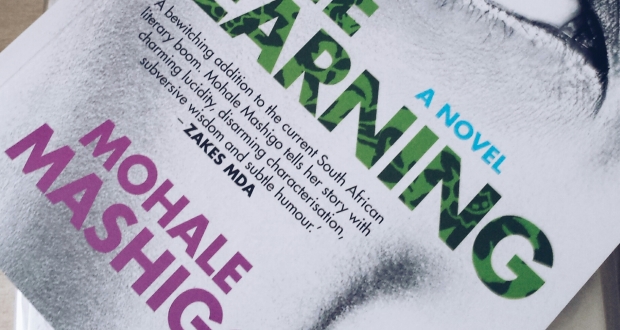Author of The Yearning, MOHALE MASHIGO spoke to Mbali Phala about storytelling, spirituality, changing the lives of children and her own yearning.
At 19, I read Zakes Mda’s Ways of Dying and that’s when I realised this is a story about black people I could know. Once I read that, I thought to myself, “I think I can do this. I’ll just write for myself”. It was at that moment that I realised I could write complex stories and be funny.
Writing and storytelling keep me alive because I’m always making up stories, and somehow through the stories, I’m able to work through this. I write because it’s therapeutic for myself. When I started writing the book I was working in advertising and sought a way to avoid my colleagues. I rewrote it in 2011 and it took about three years to finish.
I think I come from a family of storytellers. When I was a little kid, I was always with my mom around lots of women talking about life and telling stories. My dad is the one who made me a reader and my mom is the influence behind the story telling. My dad and I would sit and read books together. I was a library nerd and if my dad hadn’t made me a reader, I’d be in lots of trouble because I didn’t fit in anywhere. I was that girl that was in everybody’s group but nobody’s group, I was just floating in social circles.
I’m human and my parents decided to name me Kgomotso Carol Mashigo. When I become a musician, I decided to call myself Blck Porcelain. When I finally decided to be a serious writer, I decided to give a shout out to my mom, who was Ms Mohale before she got married and decided to call myself Mohale Mashigo. They are not different women but I think they definitely have different personalities and voices because I’m a storyteller. The dominant voice is definitely Carol Mashigo because I have to be her every day. Occasionally, I write songs as Blck Porcelain and I tell stories through music. And when I tell stories writing then I’m Mohale Mashigo.
I’m a spiritual person. My mom is very religious, and that’s her spiritual practice – her religion. I went to church my whole life but I didn’t believe in Christianity for one second. I always thought we were all pretending and performing this religion. As I grew up, I realised it was important to my mom and that made me question what was important to me. That’s when I realised that creativity is my spiritual practice.
Telling a story is easy for me. I loved writing the book because I got stuck in it. I didn’t worry about anything because I’m in this world that I created, it’s lovely. The only difficult part is when I had to write the ugly parts, I think I spent a month avoiding writing the ugly things. I knew that it had to happen to the characters but I came up with excuses to avoid it. I grasped that life doesn’t pause because an ugly thing is about to happen so I had to be real and continue writing.
The Yearning is spiritual; it’s a prayer, hence the chapters The Father, The Son, The Holy Spirit, Amen. Whenever we used to pray when I was younger, I’d hold my breath during the prayer and exhale after saying amen. I felt the same about the book. There’s so much that happens in this story that when you get to the end of the journey, you exhale.
The story of Marubini is really about how her parents loved her so much, they had to hold on to her so tight that they caused some cracks as well. Black parents are so secretive and they think they’re protecting us, but it’s the opposite. We go around the world not knowing parts of ourselves. There are some secrets that we need to know, it may be an ugly thing but we need to know it so we can move on. When I was writing this book, I didn’t know that I had my own yearning. I questioned whether I was living my life the way I want to or living the way my parents want me to. Am I trying to please them or hiding from being a writer? Through this, I realised there were many things that brought me to this point.
If I wasn’t a writer or an artist, I’d be a teacher. I love children and I volunteer for a programme called the Shine Centre, although I haven’t been there in the last couple of months. We teach children literacy, who are often overlooked in a class of approximately 50 children. A teacher can’t possibly know how all the children are doing in class so we tutor them. At the beginning of the year, you’ve got all these children that know very little and know more than they did at the beginning of the year. In the third term, they can pronounce words without my assistance. Watching a person do something they were told they couldn’t do a thing, learn how to do a thing and fly with it, is so beautiful.
I had a teacher that told me I wouldn’t amount to anything; look at me now. She was an awful woman. If I saw her now, I wouldn’t say anything to her. I’d just walk past her like I don’t know her. She didn’t influence my life in any way; she actually tried to bring me down. Teachers are so important in children’s lives that you can’t do that to a kid. Even if the child is wrong for the 50th time, you’ve got no right. Leave your self-esteem issues at home and keep that bullshit at home. You’re working with the future, don’t do that to children.
There are so many stories in South Africa, of people who did wonderful things and just stories about love. We’ve buried all our stories and all our heroes, and some of the heroes are missing and we don’t know where they’re buried. I don’t want the same to happen to our stories. Every story and every voice matters, and that’s why I want black writers to keep writing and tell their story.









